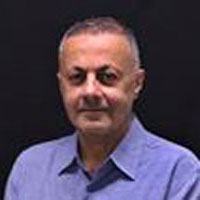Mahiyar Arefi and Amir Tayyebi
Tekton
Volume 9, Issue 1, September 2022
pp. 8 – 26
 Mahyar Arefi was a Visiting Professor at the National University of Singapore and an International Affiliate Professor at Jundi-Shapur University of Technology in Dezful, Iran. He taught at the University of Texas at Arlington for four and at the University of Cincinnati for sixteen years. Specializing in urban design theory, practice, and pedagogy, Dr. Arefi co-edits Urban Design International. His forthcoming book explores the interface between formal and informal urban design.
Mahyar Arefi was a Visiting Professor at the National University of Singapore and an International Affiliate Professor at Jundi-Shapur University of Technology in Dezful, Iran. He taught at the University of Texas at Arlington for four and at the University of Cincinnati for sixteen years. Specializing in urban design theory, practice, and pedagogy, Dr. Arefi co-edits Urban Design International. His forthcoming book explores the interface between formal and informal urban design.
mahyararefi@gmail.com
 Amir Tayyebi is an Assistant Professor at Jundi-Shapur University of Technology in Dezful, Iran. He received his Ph.D. from Shahid Beheshti University, Tehran, Iran, in 2005, 2010 and 2018 respectively. He has been a visiting researcher at the Politecnico di Milano in previous years. His main areas of research interest are urban design theory, urban spaces design and tourists’ image of urban destinations.
Amir Tayyebi is an Assistant Professor at Jundi-Shapur University of Technology in Dezful, Iran. He received his Ph.D. from Shahid Beheshti University, Tehran, Iran, in 2005, 2010 and 2018 respectively. He has been a visiting researcher at the Politecnico di Milano in previous years. His main areas of research interest are urban design theory, urban spaces design and tourists’ image of urban destinations.
a_tayyebi@jsu.ac.ir
ABSTRACT
This article unfolds a collective educational journey that while initially faced uncertainties, ultimately received positive feedback from the students in an online urban design studio. During the rampant COVID-19 pandemic, one of the two instructors communicating from overseas, raised initial pedagogical concerns. To remedy these, the two instructors dedicated the first part of the studio to promote self-discovery, and theorizing the urban complexity. Exposure to theory, while less common if not uncommon in design studios, removed the students’ initial misgivings. Gaining student confidence boosted their spirit in crafting idiosyncratic interpretations based on personal memories, and paved the way toward assuming agency, and subsequently integrative learning. This technique enabled students to connect discrete structural learning domains to produce more complicated outcomes, and by doing so experienced three states of mind. Melting away initial doubts coincided with thematic arrangement. Boosting confidence through conceptual connectivity and self-discovery resulted in ebullience in designing through purposeful action. Juggling the balance of hope and expectation, this article contributes to the scanty literature on uncertainties faced by both for students and instructors in teaching studios.
KEY WORDS:
Urban Design Pedagogy, Learning Uncertainties, Online Studio

